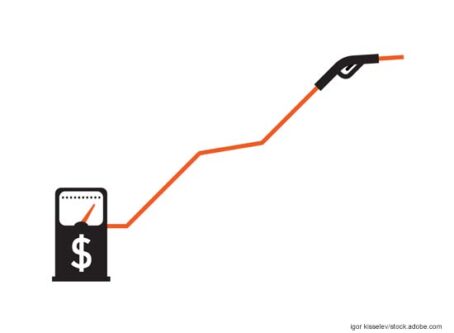Delaware latest state to study vehicle miles traveled tax
With funding for infrastructure becoming worrisome as fuel taxes bring in less revenue, several states have been studying a potential mileage-based user fee or vehicle miles traveled tax.
Delaware is the latest state to join the ranks. The I-95 Corridor Coalition and the Delaware Department of Transportation have launched a three-month study of the vehicle miles traveled tax.
From May 1 to the end of July, phase one of the study will be a pilot program that includes more than 120 participants, which include DOT officials, legislators, members of the media and other stakeholders.
Unlike similar studies that have been conducted in the West, Delaware’s study will be the first to look into issues surrounding multiple-state travel and toll interoperability, according to a DelDOT news release.
Although phase one deals primarily with passenger vehicles, phase two of the study will shift its focus toward the trucking industry. Slated for 2019, DelDOT will partner with a private trucking company for a multistate pilot program. This will address issues specific to commercial vehicles that may not apply to passenger vehicles.
Similar studies have been done in the West, with California, Oregon and Washington leading the charge. Delaware’s vehicle miles traveled tax study is among the first in the East.
“The majority of the mileage-based user fee studies have happened in western states, and this study brings the East Coast perspective and its unique challenges, such as managing out-of-state mileage and synergies with toll authorities,” Patricia Hendren, executive director of the I-95 Corridor Coalition, said in a statement. “While the I-95 Corridor Coalition is neutral regarding mileage-based user fee as the ultimate solution for transportation funding, we want to make sure that the voices of citizens along the I-95 corridor are part of the national discussion.”
Much like previous studies, DelDOT’s study will use three methods to collect data:
- Plug-in device with location
- Plug-in device without location
- Smartphone with location
Both plug-in devices have additional perks. Motorists can check their vehicle’s health and battery voltage with the devices. A driver scoring system is also available by analyzing factors including high speed, acceleration, braking and idling. Drivers also can engage in a friendly contest by earning achievement badges for good driving behavior.
Devices with location includes a feature called “safe zones.” If a driver’s teenage child wants to take out the car, for example, the car’s owner will be notified if the car is driven out of a geographical zone that can be customized.
According to the I-95 Corridor Coalition online calculator, most motorists will end up paying more with a vehicle miles traveled tax. Assuming an average of 1,500 miles per month for passenger vehicles, motorists with a vehicle that gets more than 22 mpg will lose money.
A monthly vehicle miles traveled tax with 1,500 miles driven will cost all motorists, regardless of fuel economy, $18.67. Vehicles getting 22 mpg nearly break even with fuel taxes at $18.60. Motorists with cars getting less than 21 mpg will be getting a deal with the vehicle miles traveled tax since fuel tax cost increases as fuel mileage decreases. For example, a vehicle getting 15 mpg will get a $8.60 monthly discount on its $27.27 monthly fuel tax. Conversely, fuel-efficient vehicles will be paying more.
According to the Environmental Protection Agency, the U.S. vehicle fuel economy for light-duty vehicles was at 24.7 mpg in 2016. Based on those numbers, most motorists would not benefit financially from a vehicle miles traveled tax based on the I-95 Corridor Coalition calculator.









